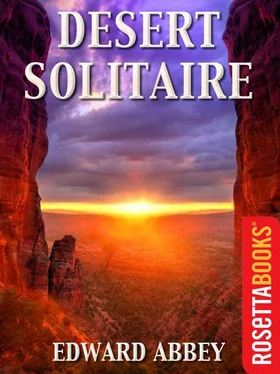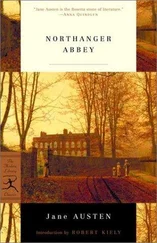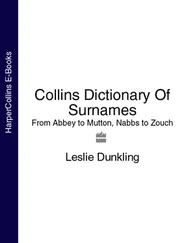Abbey, Edward - Desert Solitaire (Edward Abbey Series )
Здесь есть возможность читать онлайн «Abbey, Edward - Desert Solitaire (Edward Abbey Series )» — ознакомительный отрывок электронной книги совершенно бесплатно, а после прочтения отрывка купить полную версию. В некоторых случаях можно слушать аудио, скачать через торрент в формате fb2 и присутствует краткое содержание. Год выпуска: 2011, Издательство: RosettaBooks, Жанр: Старинная литература, на английском языке. Описание произведения, (предисловие) а так же отзывы посетителей доступны на портале библиотеки ЛибКат.
- Название:Desert Solitaire (Edward Abbey Series )
- Автор:
- Издательство:RosettaBooks
- Жанр:
- Год:2011
- ISBN:нет данных
- Рейтинг книги:4 / 5. Голосов: 1
-
Избранное:Добавить в избранное
- Отзывы:
-
Ваша оценка:
- 80
- 1
- 2
- 3
- 4
- 5
Desert Solitaire (Edward Abbey Series ): краткое содержание, описание и аннотация
Предлагаем к чтению аннотацию, описание, краткое содержание или предисловие (зависит от того, что написал сам автор книги «Desert Solitaire (Edward Abbey Series )»). Если вы не нашли необходимую информацию о книге — напишите в комментариях, мы постараемся отыскать её.
Desert Solitaire (Edward Abbey Series ) — читать онлайн ознакомительный отрывок
Ниже представлен текст книги, разбитый по страницам. Система сохранения места последней прочитанной страницы, позволяет с удобством читать онлайн бесплатно книгу «Desert Solitaire (Edward Abbey Series )», без необходимости каждый раз заново искать на чём Вы остановились. Поставьте закладку, и сможете в любой момент перейти на страницу, на которой закончили чтение.
Интервал:
Закладка:
How about a signal fire? There was nothing to burn but my clothes; not a tree, not a shrub, not even a weed grew in this stony cul-de-sac. Even if I burned my clothing the chances of the smoke being seen by some Hualapai Indian high on the south rim were very small; and if he did see the smoke, what then? He’d shrug his shoulders, sigh, and take another pull from his Tokay bottle. Furthermore, without clothes, the sun would soon bake me to death.
There was only one thing I could do. I had a tiny notebook in my hip pocket and a stub of pencil. When these dried out I could at least record my final thoughts. I would have plenty of time to write not only my epitaph but my own elegy.
But not yet.
There were a few loose stones scattered about the edge of the pool. Taking the biggest first, I swam with it back to the foot of the slickrock chute and placed it there. One by one I brought the others and made a shaky little pile about two feet high leaning against the chute. Hopeless, of course, but there was nothing else to do. I stood on the top of the pile and stretched upward, straining my arms to their utmost limit and groped with fingers and fingernails for a hold on something firm. There was nothing. I crept back down. I began to cry. It was easy. All alone, I didn’t have to be brave.
Through the tears I noticed my old walking stick lying nearby. I took it and stood it on the most solid stone in the pile, behind the two topmost stones. I took off my boots, tied them together and hung them around my neck, on my back. I got up on the little pile again and lifted one leg and set my big toe on the top of the stick. This could never work. Slowly and painfully, leaning as much of my weight as I could against the sandstone slide, I applied more and more pressure to the stick, pushing my body upward until I was again stretched out full length above it. Again I felt about for a fingerhold. There was none. The chute was smooth as polished marble.
No, not quite that smooth. This was sandstone, soft and porous, not marble, and between it and my wet body and wet clothing a certain friction was created. In addition, the stick had enabled me to reach a higher section of the S-curved chute, where the angle was more favorable. I discovered that I could move upward, inch by inch, through adhesion and with the help of the leveling tendency of the curve. I gave an extra little push with my big toe—the stones collapsed below, the stick clattered down—and crawled rather like a snail or slug, oozing slime, up over the rounded summit of the slide.
The next obstacle, the overhanging spout twelve feet above a deep plunge pool, looked impossible. It was impossible, but with the blind faith of despair I slogged into the water and swam underneath the drop-off and floundered around for a while, scrabbling at the slippery rock until my nerves and tiring muscles convinced my numbed brain that this was not the way . I swam back to solid ground and lay down to rest and die in comfort.
Far above I could see the sky, an irregular strip of blue between the dark, hard-edged canyon walls that seemed to lean toward each other as they towered above me. Across that narrow opening a small white cloud was passing, so lovely and precious and delicate and forever inaccessible that it broke the heart and made me weep like a woman, like a child. In all my life I had never seen anything so beautiful.
The walls that rose on either side of the drop-off were literally perpendicular. Eroded by weathering, however, and not by the corrasion of rushing floodwater, they had a rough surface, chipped, broken, cracked. Where the walls joined the face of the overhang they formed almost a square corner, with a number of minute crevices and inch-wide shelves on either side. It might, after all, be possible. What did I have to lose?
When I had regained some measure of nerve and steadiness I got up off my back and tried the wall beside the pond, clinging to the rock with bare toes and fingertips and inching my way crab-wise toward the corner. The watersoaked, heavy boots dangling from my neck, swinging back and forth with my every movement, threw me off balance and I fell into the pool. I swam out to the bank, unslung the boots and threw them up over the drop-off, out of sight. They’d be there if I ever needed them again. Once more I attached myself to the wall, tenderly, sensitively, like a limpet, and very slowly, very cautiously, worked my way into the corner. Here I was able to climb upward, a few centimeters at a time, by bracing myself against the opposite sides and finding sufficient niches for fingers and toes. As I neared the top and the overhang became noticeable I prepared for a slip, planning to push myself away from the rock so as to fall into the center of the pool where the water was deepest. But it wasn’t necessary. Somehow, with a skill and tenacity I could never have found in myself under ordinary circumstances, I managed to creep straight up that gloomy cliff and over the brink of the drop-off and into the flower of safety. My boots were floating under the surface of the little puddle above. As I poured the stinking water out of them and pulled them on and laced them up I discovered myself bawling again for the third time in three hours, the hot delicious tears of victory. And up above the clouds replied—thunder.
I emerged from that treacherous little canyon at sundown, with an enormous fire in the western sky and lightning overhead. Through sweet twilight and the sudden dazzling flare of lightning I hiked back along the Tonto Bench, bellowing the Ode to Joy . Long before I reached the place where I could descend safely to the main canyon and my camp, however, darkness set in, the clouds opened their bays and the rain poured down. I took shelter under a ledge in a shallow cave about three feet high—hardly room to sit up in. Others had been here before: the dusty floor of the little hole was littered with the droppings of birds, rats, jackrabbits and coyotes. There were also a few long gray pieces of scat with a curious twist at one tip—cougar? I didn’t care. I had some matches with me, sealed in paraffin (the prudent explorer); I scraped together the handiest twigs and animal droppings and built a little fire and waited for the rain to stop.
It didn’t stop. The rain came down for hours in alternate waves of storm and drizzle and I very soon had burnt up all the fuel within reach. No matter. I stretched out in the coyote den, pillowed my head on my arm and suffered through the long long night, wet, cold, aching, hungry, wretched, dreaming claustrophobic nightmares. It was one of the happiest nights of my life.
THE DEAD MAN AT
GRANDVIEW POINT
Somnolence—a heaviness in the air, a chill in the sunlight, an oppressive stillness in the atmosphere that hints of much but says nothing. The Balanced Rock and the pinnacles stand in petrified silence—waiting. The wildlife has withdrawn to the night, the flies and gnats have disappeared, a few birds sing, and the last of the flowers of summer—the globemallow—have died. What is it that’s haunting me? At times I hear voices up the road, familiar voices… I look; and no one is there.
Even the tourists that creep in and creep out in their lumbering, dust-covered automobiles reveal a certain weariness with desert travel, a certain longing to be elsewhere, to be where it’s high, cool, breezy, fresh—mountain or seashore. And they should. Why anyone with any sense would volunteer to spend August in the furnace of the desert is a mystery to me; they must be mad, these brave tourists, as I am mad.
Each day begins clean and promising in the sweet cool clear green light of dawn. And then the sun appears, its hydrogen cauldrons brimming—so to speak—with plasmic fires, and the tyranny of its day begins.
Читать дальшеИнтервал:
Закладка:
Похожие книги на «Desert Solitaire (Edward Abbey Series )»
Представляем Вашему вниманию похожие книги на «Desert Solitaire (Edward Abbey Series )» списком для выбора. Мы отобрали схожую по названию и смыслу литературу в надежде предоставить читателям больше вариантов отыскать новые, интересные, ещё непрочитанные произведения.
Обсуждение, отзывы о книге «Desert Solitaire (Edward Abbey Series )» и просто собственные мнения читателей. Оставьте ваши комментарии, напишите, что Вы думаете о произведении, его смысле или главных героях. Укажите что конкретно понравилось, а что нет, и почему Вы так считаете.












